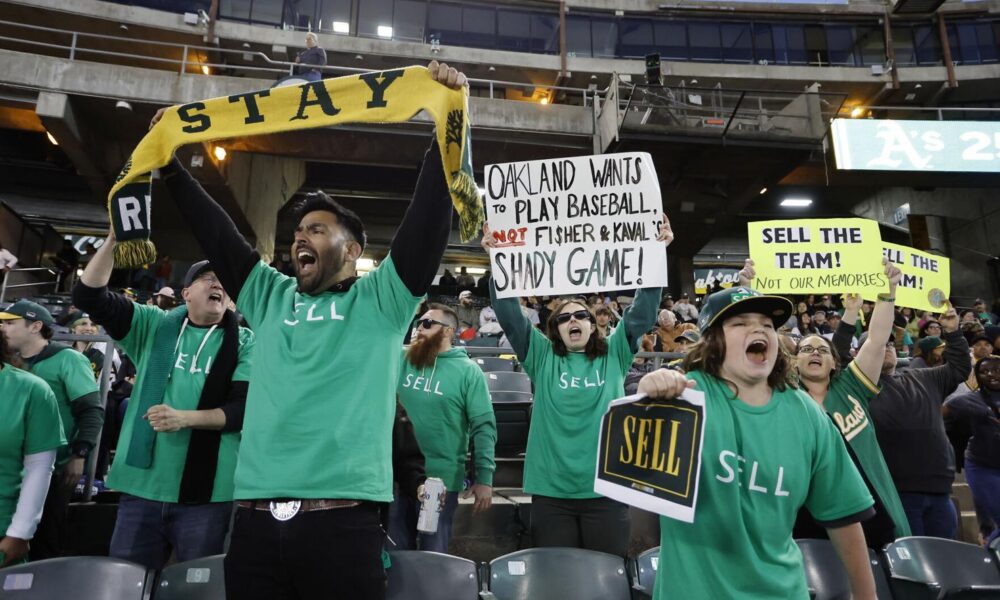Professional sports leagues across North America all face the familiar practice of tanking: When teams underperform on purpose. They trade away their best players, neglect fan experience, refuse to sign franchise players to extensions, and intentionally make the team worse. The motivations behind tanking can vary. Oftentimes, the reason to tank is to have a better shot at selecting higher in the following years’ draft, like the 2002-03 Cleveland Cavaliers’ infamous tank to get a shot at LeBron James—a gamble that was ultimately successful.
In other cases, tanking is a necessary evil; teams sometimes need to be bad in order to rebuild and be good again. Take the Houston Astros of the late 2000s and early 2010s—they are the prime example of how to properly rebuild a team by acquiring veteran assets as well as promising prospects in order to build a fresh system from the draft up. This process resulted in five American League West division titles, four American League pennants, and two World Series titles between 2017 and 2022.
Major League Baseball (MLB) is plagued by a different type of tanking—a practice characterized by owners who take advantage of MLB’s revenue sharing system and continuously put out bad teams, much to the distaste of their fanbases. Although they find some success in winning seasons and make the odd playoff run in spite of their ownership, these teams do something beyond tanking, what Effectively Wild podcast host Meg Rowley calls “nutting.”
The etymology of nutting comes from the Pittsburgh Pirates owner Bob Nutting and can be defined as “the act of an owner pocketing revenue instead of spending it to improve the team.” After acquiring majority ownership of the Pirates in 1996 and finishing last in the National League Central that same season, Nutting handcuffed team spending, refusing any commitment to spending on acquiring players or fixing existing player development issues.
All the while, the Pittsburgh Post-Gazette reported that in most years since 2007, the Pirates have been able to cover their payroll with their gate revenue (ie. ticket sales, concessions, stadium merchandise sales, and parking) alone. This does not include any revenue from national or local television, or, most importantly, revenue sharing.
Under the new collective bargaining agreement (CBA) negotiated in 2022, each MLB team pools 48 per cent of local revenues with the total amount split equally between all 30 teams. This results in each team taking in 3.3 per cent of the total—an estimated $110 million USD, if not more. Teams also receive a share of national revenues, totalling around $90 million USD per team. The goal of revenue sharing is to allow small market teams to compete with big market teams like the New York Yankees and the Los Angeles Dodgers that bring in more money from ticket sales and merchandise. However, nutting has inspired many teams to exploit loopholes in this system, pushing revenue sharing money into other areas without improving their on-field product by increasing payroll.
The Oakland Athletics (A’s) are another team that practices what the Pirates preach. In the past decade, the A’s have either traded their best players away for minimal return (explaining their 22nd overall farm system ranking) or lost them to free agency. However, the motivation behind the A’s nutting has been not only to avoid spending money but to service the team’s relocation to Las Vegas—a move that A’s owner, John Fisher, claims will allow the team to stop using “Moneyball” tactics to field their roster.
The move to Vegas has not only alienated A’s fans, prompting “the Summer of Sell” movement––there is no guarantee that Fisher will not continue to roll out teams similar to this year’s abysmal $56.9 million USD player payroll that resulted in a current record of 42–96.
Despite the MLB Players Association pushing to further regulate revenue sharing, nothing in the new CBA forces teams to put these dollars towards their on-field product. Questions of whether a salary floor or greater restrictions on revenue sharing dollars are the solution is up for debate, but there is one certainty: MLB needs to put a stop to nutting.








